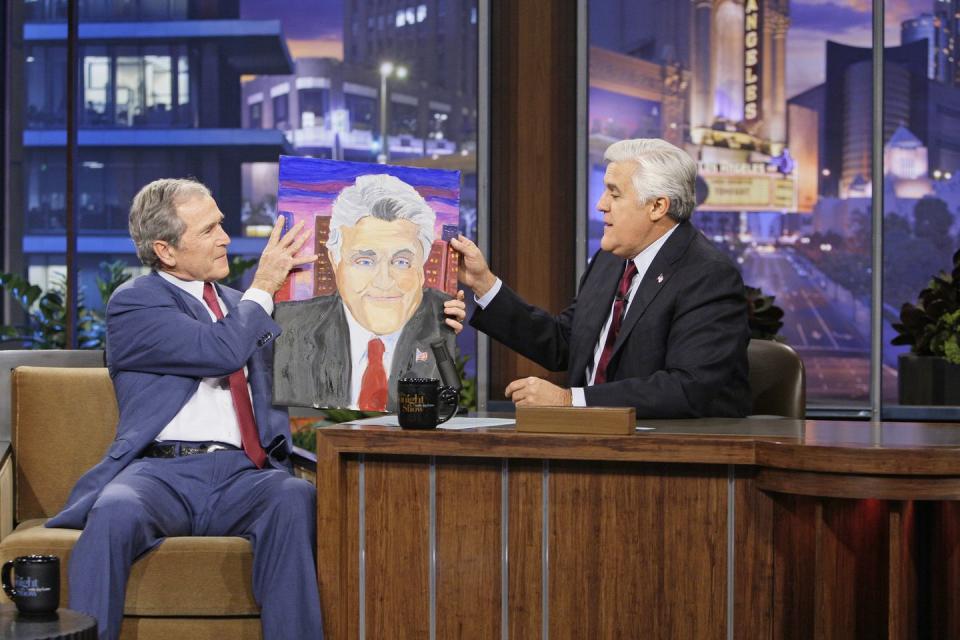Why No One Retires Anymore


People once yearned for retirement. They would hope to quit at 65, get a gold watch—a dubious gift for someone who no longer has a schedule—and move someplace warm to play golf and eat dinner at an increasingly early hour. During the first tech bubble, young entrepreneurs cashed out and retired before 40, drifting off into travel, philanthropy, and the occasional vanity project. Everyone planned to retire. The contest was who could do it earliest.
Today, a tumbling stock market might have upset the plans of the millennials of the FIRE (financial independence, retire early) movement. But the secret weapon for some of the world's most successful people is that retirement was never an option.
When Jayson Adams retired in 1997 at 29, after selling his company Netcode to Netscape for more money than he would ever need, his plan was to spend the rest of his years surfing and playing guitar. When I ran into him a few months back, it was at the Google offices in Santa Monica. Where he was working.

No one chooses to retire anymore if they can help it. Warren Buffett, whose personal net worth is more than $90 billion, is 89 and still working. Henry Kissinger, 96, runs a consulting firm that advises world leaders by drawing on his extensive knowledge of human history, most of which he has lived through. Elaine May, 87, could rest on her beloved-comic laurels but is instead gearing up to direct her first feature film in 32 years. New York Post gossip columnist Cindy Adams, 89, will surely call her when it comes out. Sheldon Adelson, 86, not only runs the Venetian hotels, he also advises our President Trump, who is 73.
This coming November that president is likely to run against a 77-year-old Joe Biden or a 78-year-old Bernie Sanders. Rupert Murdoch, who packages all of this as blood sport, is 88. Robert Caro, 84, is rushing to finish his Lyndon Johnson biography before his own biographer gets to work, and Netflix recently scooped up the rights to a movie starring 85-year-old Sophia Loren. When I had lunch with Carl Reiner, 98, at his house not long ago, he brought me upstairs to a room where he toiled with two employees on several books he was writing.
Graydon Carter, 70, left Vanity Fair in 2017 and started spending part of the year in Provence, but he didn’t take up petanque, he started the new weekly publication Air Mail. His advice? “First of all, never, ever, actually retire—at least not in the not-working, checkered golf pants, Republican-voting, dinner at 5 p.m. sense of the word. Cut back on your work—that’s a must. And leave plenty of time for reading and mulling a final chapter.” When Miuccia Prada, 70, recently announced that Raf Simons was to be her co–creative director, she was adamant that it wasn’t a prelude to retirement. “Oh no,” she said, “to do better, to work harder—I’m very interested in this.”
All of these people have enough money to retire. Which is, oddly, the norm for people who keep working past 70. While the age at which Americans intend to retire has indeed gone up by six years over the last two and a half decades, to 66, according to Gallup polls, most of that change comes among college graduates. Four decades ago people with a BA retired six months later than people who had only a high school diploma. Now there’s a three-year disparity.
Retirement has become so uncool that more than a third of the members of AARP are still working. Which is why the lobbying group officially changed its name in 1999 from the American Association of Retired Persons to an acronym that doesn’t stand for anything. In fact, when AARP CEO Jo Ann Jenkins was asked by the Washington Post for her advice about retirement, she said, “My first piece of advice is: Don’t retire.”
It’s as if the NRA declared that hunting knives are where it’s at.
That’s because work isn’t merely what successful people do, it’s who they are. If you ask most people how they’re doing, they’ll say “fine,” but if you ask a member of the cosmopolitan elite, she’ll say “busy.” In our brief moments of not working, we are listening to audiobooks while getting our steps in. We don’t sit by a pool. We don’t play card games. We don’t golf. We crush it.
“I cannot imagine ever chilling under a mango tree. I get much more joy from my work than from cruising in the South of France,” says Arianna Huffington, who is 69 and started a new company, Thrive Global, four years ago. “But others may get more fulfillment from cruising or golfing. And there is absolutely nothing wrong with that.” Except, of course, that they are losers who are never getting invited to Davos.
Huffington points out that the word retire means to withdraw or retreat. Not only don’t the elite retreat, they have nothing to retreat into. “Even if they’re wrong, people don’t feel as though they have time in life to have avocations,” says Laura L. Carstensen, director of Stanford University’s Center of Longevity. “There’s a big drop in how much time we spend with our neighbors. We’re less socially engaged in our communities. So people think, What would I do? Because they’ve done nothing else for 40 years.”
The transition is so tough that the Harvard School of Public Health found that retirees are 40 percent more likely to have a heart attack or stroke during the first year of retirement than people who keep working.

When 27-year-old Alfonso Cobo sold Unfold, the social media template tool he co-founded, to Squarespace at the end of last year for enough money to last at least a lifetime, he didn’t consider so much as a weekend at the beach. “I’d honestly do it for fun,” Cobo says about his job. He swears he’ll never retire. “I’d rather work than go clubbing.”
Sterling McDavid, a 31-year-old former Goldman Sachs analyst who co-founded the fashion line Burnett New York, tells her employees that she’ll never retire. “It honestly gives me total anxiety,” she says. “Sitting on the beach with my piña colada? I can barely do that on vacation. Retiring at 65 and thinking I had to do that for 30 years? I can’t imagine.”
Her dad, David McDavid, a 78-year-old former co-owner of the Dallas Mavericks, retired young. For a month. Then he started a new business. Sterling says that both she and her dad learned a lesson during that time. “You have only one life,” she says, and she’s going to spend as much of it as she can working.

The privileged members of society have never embraced being idle; knowledge economy workers’ disgust at idleness is the same thing that every aristocracy has felt. Landed gentry didn’t technically work, because paid work was awful: hoeing, manuring, smithing. But they did spend their time productively, doing things that are jobs today. They were naturalists, geographers, historians, writers, artists, harpsichordists, and, from what I remember from The Cherry Orchard, billiard players. To cease to contribute was to concede that you weren’t important. It meant you weren’t busy.
I do have one friend who retired at 40 eight years ago and has kept to it. “I’ve heard about these people who can’t seem to walk away from work, fearing irrelevance and boredom,” he says. “Fortunately, I’m not one of them. I guess my career was just a small facet of my identity.”
My friend is a throwback to his parents’ generation. Carstensen points out that the retirement age dropped unnaturally in the second half of the 20th century, back when Goldman partners famously got out young. “People kept retiring earlier and earlier. There was a culture of boasting about retiring early,” Carstensen says. “That has really changed. Some of it is discovering that you can play only so many rounds of golf in a week for so many years without realizing you’re bored.”

The most successful non-retirer of all time may be Norman Lear. Last fall, Lear, 97, reupped his first-look deal at Sony for another three years. He’s got a show on Pop TV (One Day at a Time), he won an Emmy last year for Live in Front of a Studio Audience (which ABC renewed for two more specials), and he has several other projects in development. If retirement were a game, it would be one that Lear was never asked to play.
“I can’t imagine not having a place like this to come to with people I care about to talk about things that interest me,” Lear says from his office on the Sony lot. He thinks so little about retirement that a sitcom pilot he created was called Guess Who Died?.

The fallout from this trend could be a more difficult job market. While the likes of Elon Musk and Andrew Yang worry that robots will take our jobs, they will much more likely be taken by dotards who refuse to retire. To keep the unemployment rate from skyrocketing, Stanford’s Carstensen advocates that people of every age work fewer, more flexible hours. “I could see us going to 30-hour or even 25-hour workweeks without this idea that we’re going to retire for 25 years,” she says.
Carstensen knows firsthand how tight the job market could be if we don’t do this, but she’s not going anywhere. She’s 66, and she’s tenured.
This story appears in the May 2020 issue of Town & Country.
You Might Also Like
